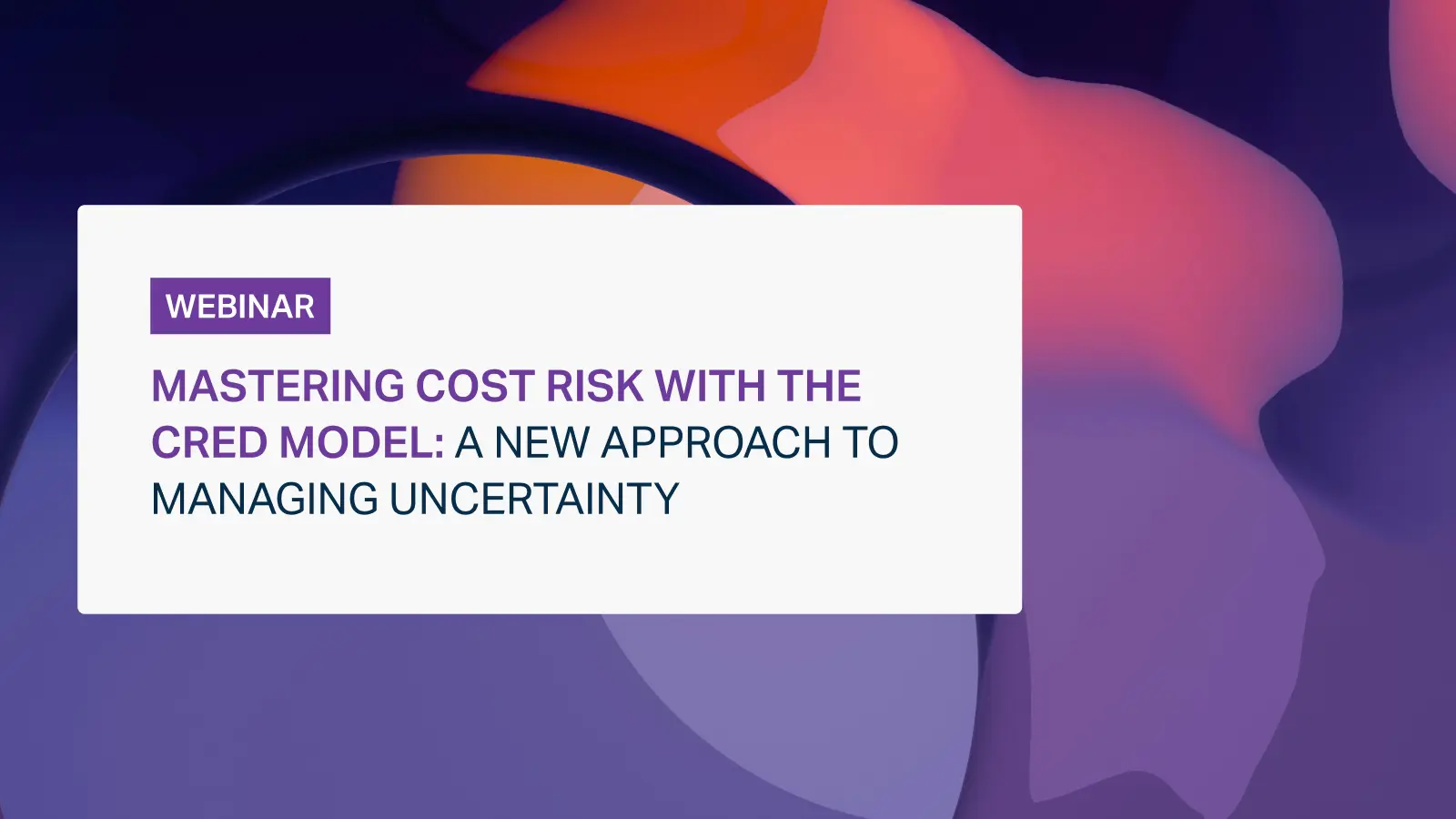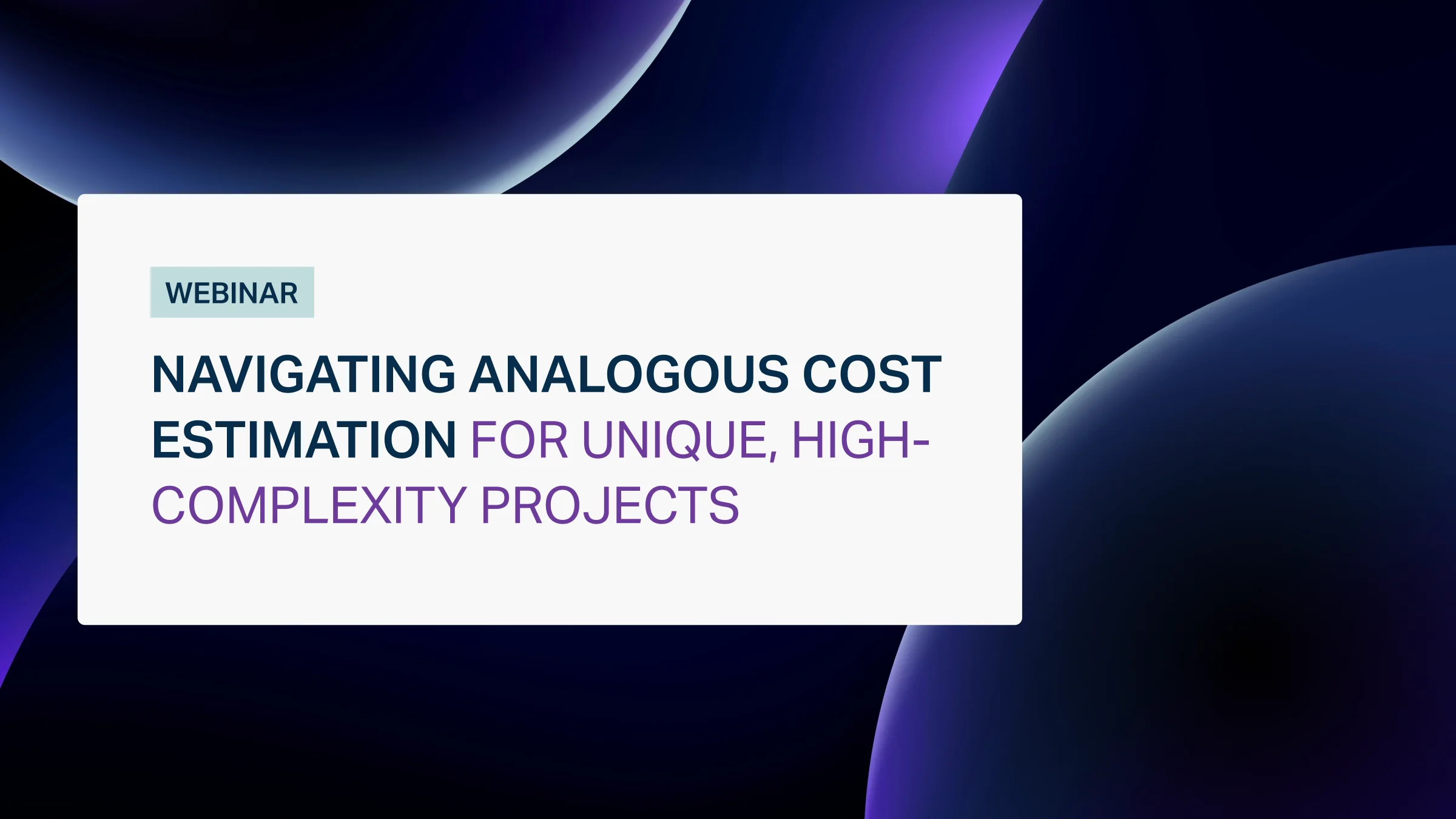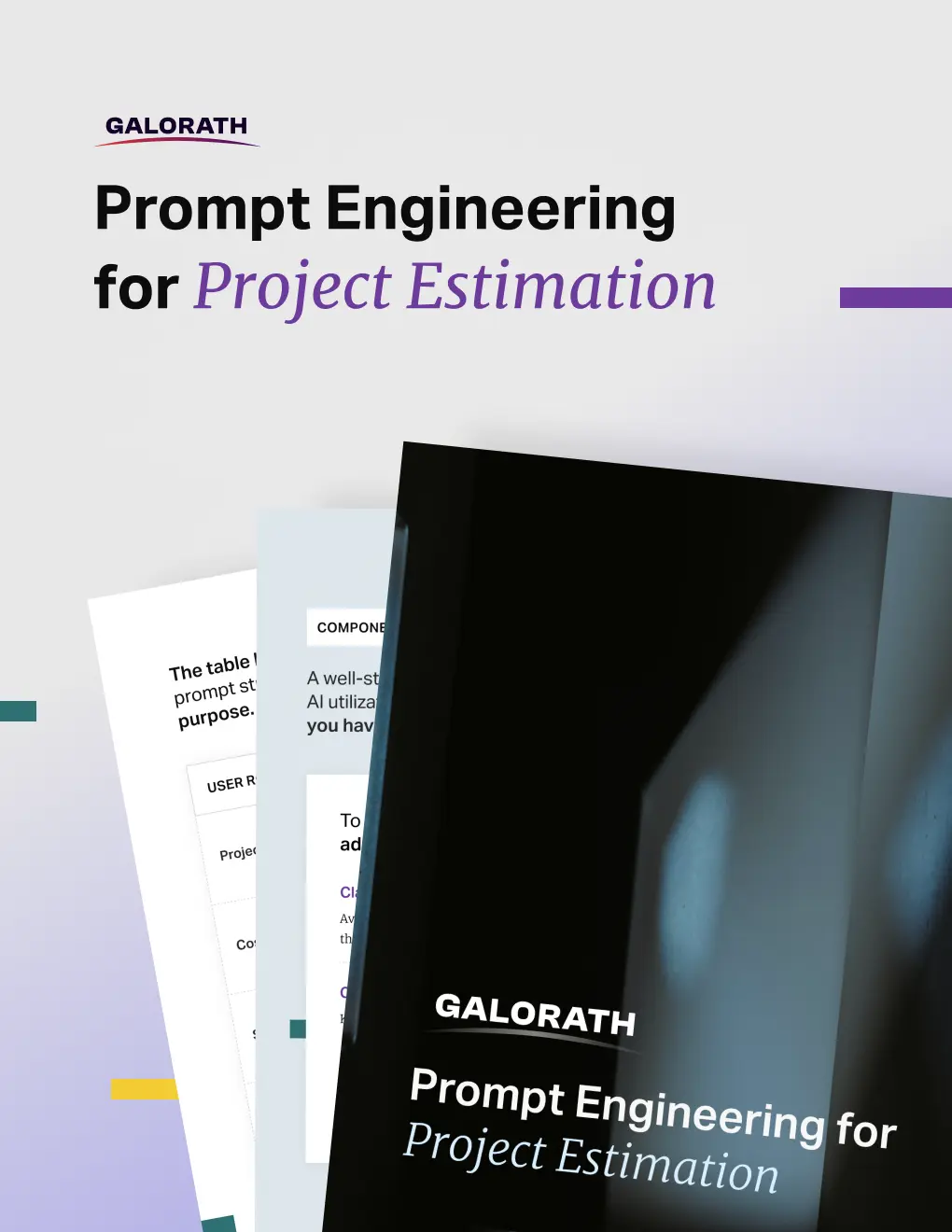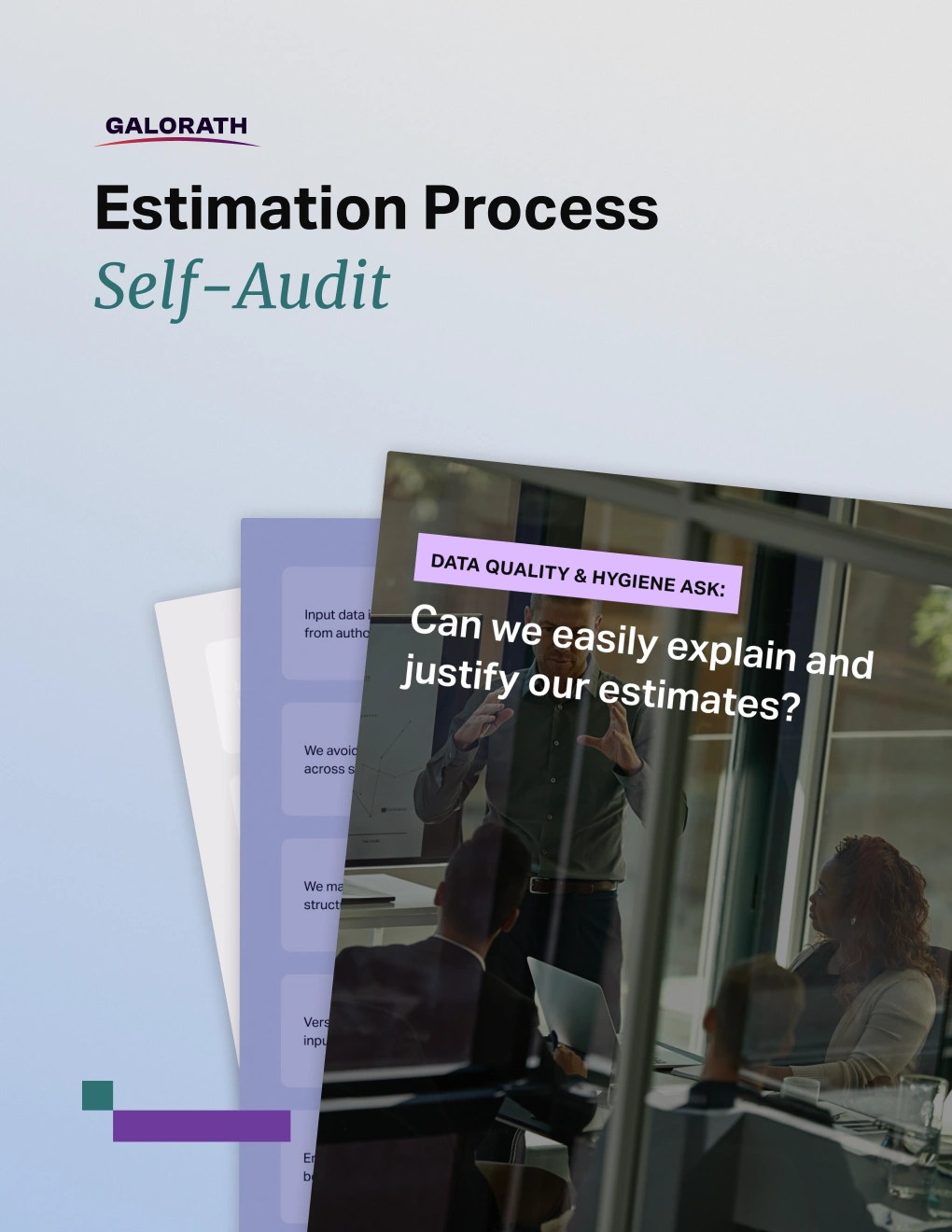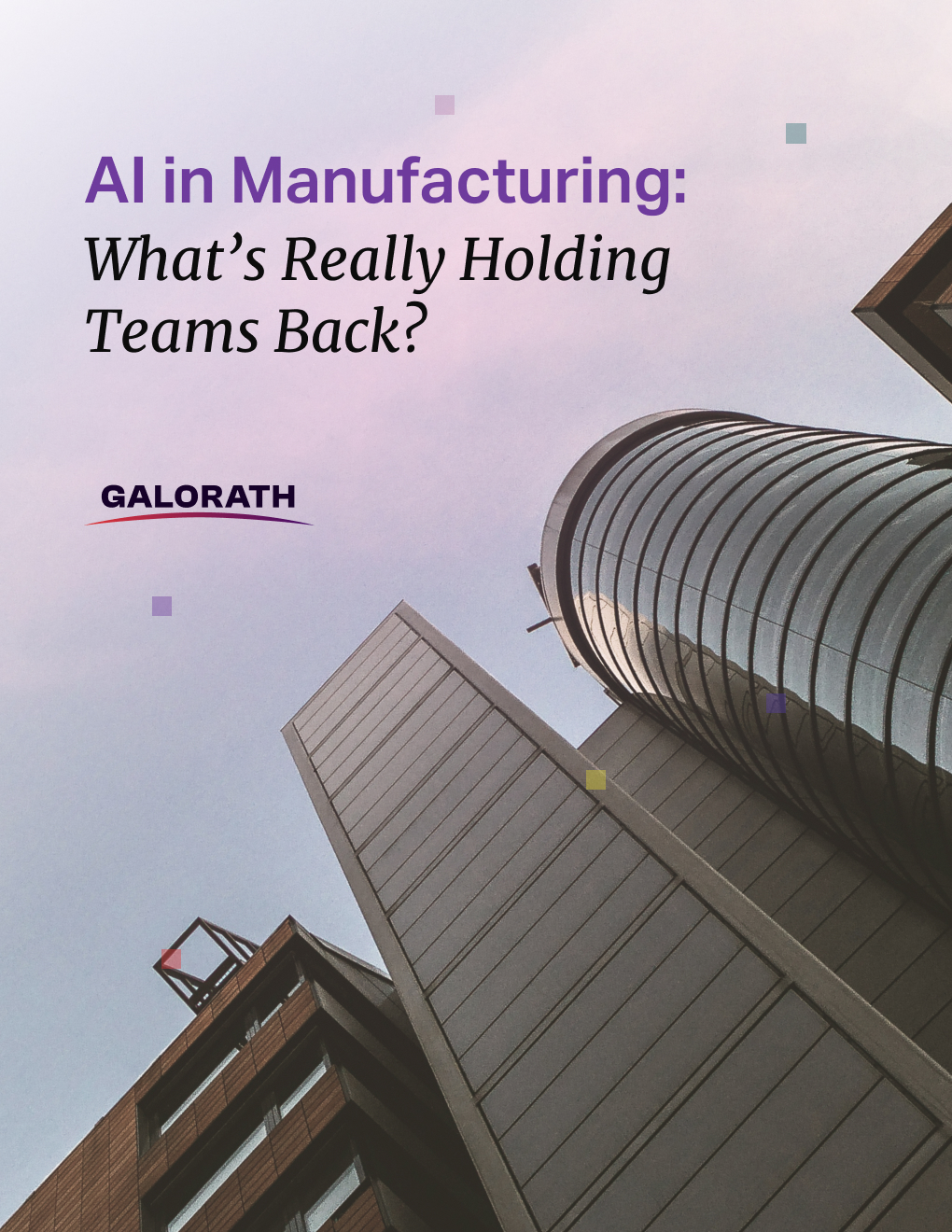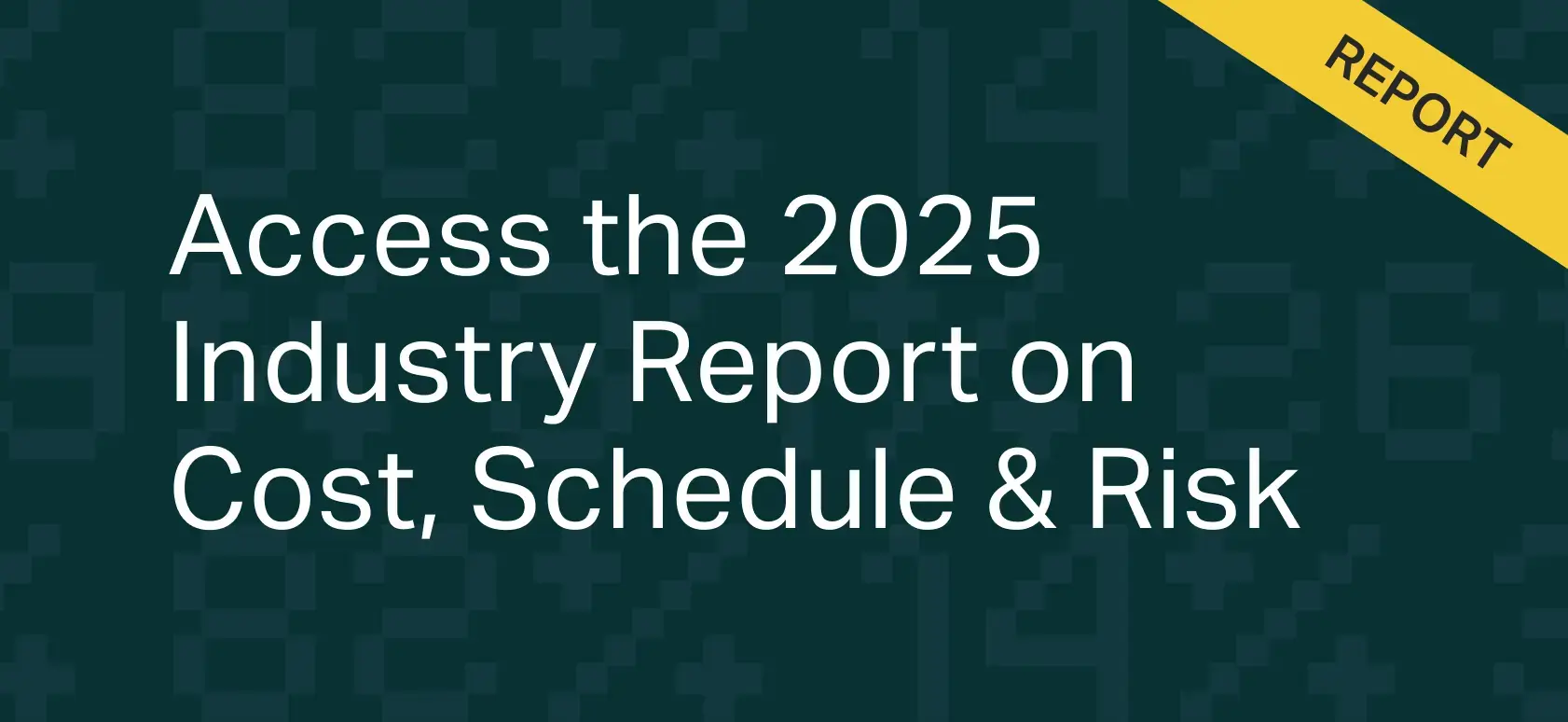Mastering Cost Risk with the CRED Model: A New Approach to Managing Uncertainty
In project management, expert judgment is a key tool for making decisions in uncertain situations. This approach relies on individuals with specialized knowledge and experience to guide project outcomes. Experts provide valuable insights when data is scarce or unreliable, offering guidance on cost estimates, timelines, risk management, and quality control.
Expert judgment is essential for addressing complex decisions and unforeseen challenges. It aids in estimating costs, managing risks, selecting vendors, and validating assumptions. By using expert judgment, project managers navigate uncertainty and improve their chances of success.
This article explores expert judgment’s role in project management, its applications, and the methods used to elicit and validate expert opinions. Understanding how to effectively use expert judgment can help project managers make more informed decisions and drive successful project outcomes.
What is Expert Judgment in Project Management?
Expert judgment in project management refers to the use of specialized knowledge, skills, and experience from individuals or groups to guide decision-making, solve complex problems, and estimate project parameters such as cost, time, and risk. It is a key tool used when data is insufficient, uncertain, or unavailable, providing insights that help shape project strategies and outcomes.
According to the PMBOK® Guide (Project Management Institute), expert judgment is one of the most commonly used tools and techniques across various project management processes. It is applied in areas such as project scope definition, risk management, estimating costs, and scheduling. Experts can be internal team members or external consultants, depending on the project’s needs and the required knowledge.
PMI (Project Management Institute) defines expert judgment as “judgment provided based upon expertise in an application area, knowledge area, discipline, industry, etc. as appropriate for the activity performed”. Experts typically offer insights based on their education, experience, and specialized training, helping project managers make informed decisions in the face of uncertainty.
When is Expert Judgment Used?
Expert judgment is used in project management when there is a lack of sufficient data, uncertainty, or complexity that makes it difficult to rely solely on historical data or automated processes. It is especially useful in the following scenarios:
1. Uncertainty and Complexity
When projects involve high uncertainty, new technologies, or unique circumstances that have not been encountered before, expert judgment provides valuable insights that cannot be obtained from existing data. Experts bring in-depth knowledge and experience to assess risks, estimate costs, and set realistic timelines.
2. Estimating Costs, Time, and Resources
When detailed data for cost, schedule, or resource estimates is unavailable, experts can provide high-level estimates based on their experience with similar projects. This is particularly useful during the early stages of a project when precise data is lacking.
3. Risk Management
During risk identification and analysis, experts help determine potential risks, their impact, and probability, especially when dealing with complex or unfamiliar situations. Techniques like brainstorming or the Delphi method often involve experts to gather diverse perspectives on project risks.
4. Decision-Making for Critical Issues
Expert judgment is essential for making decisions that involve trade-offs, such as balancing cost, schedule, and quality. For high-stakes decisions or go/no-go choices, experts provide guidance based on their knowledge of the industry, market trends, or technical feasibility.
5. Problem Solving in Unique Scenarios
When a project faces a unique challenge or problem that requires specialized knowledge (e.g., a technical issue, regulatory compliance, or vendor selection), expert judgment helps in crafting solutions that are both practical and aligned with industry standards.
Who Are the Experts and Where to Find Them?
Experts in project management are individuals with specialized knowledge, skills, and experience in a specific area crucial to a project’s success. Their judgment is valuable because it provides insights beyond the available data, especially in uncertain or complex situations. These experts play a key role in making informed decisions, solving problems, and forecasting outcomes when typical methods or historical data fall short.
Types of Experts
1. Internal Experts
Internal experts are members of the project team or organization with extensive knowledge of the organization’s processes, culture, and goals. These experts include experienced project managers, engineers, technical specialists, or senior leaders who have handled similar challenges before. Their judgment is valuable because of their deep understanding of the company’s specific needs and internal dynamics.
2. External Experts
External experts are consultants, industry specialists, or subject-matter experts who come from outside the organization. They bring specialized knowledge that may not be available internally. External experts are often sought for their experience in niche fields, new technologies, or for offering an objective, independent perspective.
Which experience do Experts need to have?
1. Domain Expertise
Experts must have practical experience in the project’s specific domain. For example, an IT expert with years of experience managing software development projects would provide judgment on system architecture, resource allocation, and potential risks related to the project. Domain expertise ensures that the judgment provided is applicable and grounded in relevant knowledge.
2. Industry Experience
In addition to domain-specific knowledge, experts should understand the broader industry landscape. For example, a construction project expert needs to be familiar with industry standards, regulations, and market trends. This broader perspective helps the expert make more accurate predictions and decisions that align with industry best practices.
3. Credentials and Certification
Experts often hold relevant certifications or academic qualifications, which validate their skills and knowledge. For instance, a PMP (Project Management Professional) certification is often a mark of expertise in managing projects. Such credentials demonstrate that the expert is well-versed in recognized methodologies and practices, ensuring their judgment is grounded in standardized frameworks.
Where to Find Experts?
1. Within the Organization
Internal experts can be found by identifying key team members with extensive experience in specific areas. Organizational networks, knowledge management systems, and internal directories often help locate experts within the company who can provide guidance on project-related issues.
2. Professional Networks and Associations
Professional organizations such as PMI (Project Management Institute), IEEE, or AACE International offer membership directories and networks where project managers can find experts in various fields. These associations often have certified professionals or consultants who specialize in specific project management areas.
3. Consulting Firms
When in need of specialized knowledge, many organizations turn to consulting firms. These firms offer experts with years of experience across various industries, helping projects navigate complex challenges. Consulting firms can connect organizations to top experts in risk management, cost estimation, and other niche areas.
4. Conferences and Industry Events
Industry conferences, seminars, and webinars are excellent opportunities to connect with experts. Many experts speak at events, share their knowledge, and network with other professionals. These events often provide access to the latest insights and allow project managers to meet thought leaders in the field.
Why Use Expert Judgment?
Expert judgment is used in project management to provide insights and make decisions when there is uncertainty, lack of data, or complex situations that cannot be addressed by conventional methods. Experts leverage their specialized knowledge and experience to offer reliable guidance, helping project managers make more informed choices. The 4 most common reasons to use expert judgement is when you have to handle uncertainty, make complex decisions, there are time or resource constraints and when there is a lack of sufficient data.
1. Handling Uncertainty
Projects often involve unknowns and new challenges that cannot be predicted through data alone. Expert judgment helps navigate these uncertainties by drawing on the expert’s experience and intuition, offering forecasts and estimates based on their understanding of similar situations.
2. Making Complex Decisions
In cases where projects involve complex or high-stakes decisions, such as trade-offs between cost, quality, and scope, expert judgment becomes crucial. Experts can help project managers evaluate different options and choose the most suitable course of action, considering factors that are not always quantifiable.
3. Time and Resource Constraints
When projects are tight on time or resources, expert judgment provides quick, high-level estimates or solutions. It allows project managers to make decisions without waiting for exhaustive data, speeding up the planning and execution phases.
4. Lack of Sufficient Data
During the early stages of a project or when historical data is limited, expert judgment can fill in the gaps. It allows project managers to proceed with planning, estimating, and risk assessment even when reliable historical data is not available.
How expert judgement aligns with other Estimating Techniques?
Expert judgment is usually used along other project estimating techniques, so let’s address how they usually work together.
- Analogous Estimating
Analogous estimating uses historical data from similar projects to predict outcomes. While useful, it is less precise than expert judgment when a project deviates from previous projects in significant ways. Experts can adapt their judgment to account for unique factors that may not be captured in historical data.
- Parametric Estimating
Parametric estimating technique uses mathematical models based on historical data to make estimates. However, it may not account for all the nuances of a new project, particularly when there are unique challenges or external factors involved. Expert judgment, on the other hand, can adjust for these factors and provide a more tailored estimate.
- Data-Driven Techniques
Estimating methods such as Monte Carlo simulations rely heavily on historical data, statistical analysis, and trends. These techniques are highly reliable when sample data is available. However, they may not be effective in new or highly uncertain projects where data is scarce. In contrast, expert judgment fills this gap by providing insights based on experience rather than pure data.
What Are the Applications of Expert Judgment?
Expert judgment helps guide critical decisions in project management, such as risk identification, defining project scope, making go/no-go decisions, and ensuring quality. Experts provide insights that help shape the overall direction of a project, ensuring it stays aligned with organizational goals and objectives. Here are the key applications of expert judgment in project management:
1. Project Estimating
In project estimating, expert judgment plays a vital role in forecasting project parameters like time, cost, and resource requirements. This is particularly important during the early stages of a project when historical data is scarce, and detailed planning hasn’t yet been done. Experts use their knowledge and experience to provide estimates that guide the planning phase of a project.
Expert judgment for project estimating is typically applied in cost estimating and scheduling, both of which are crucial elements for successful project planning.
How Is Expert Judgment Used for Project Cost Estimating?
Expert judgment is used in project cost estimating to provide estimates for project expenses, including labor, materials, and overheads. Experts draw on their experience with similar projects to offer high-level cost forecasts. This is especially useful when detailed cost data or historical records are not available. Experts may consider factors like project complexity, external factors, and industry trends to provide a more accurate estimate of the financial requirements. As Christopher Rush points out, experts use knowledge across various fields to “generate science at a global level” and bridge gaps, which is crucial in environments with limited data.
For example, a construction expert may estimate costs for a building project by considering materials, labor rates, and previous similar projects. They may also adjust their estimate based on their understanding of local market conditions or unforeseen risks.
How Is Expert Judgment Used for Project Scheduling?
Expert judgment is essential for project scheduling, particularly when predicting the duration of tasks and determining the overall project timeline. Experts with experience in similar projects use their knowledge to estimate how long specific tasks will take and how different elements of the project interact. Their judgment helps account for variables such as resource availability, task dependencies, external constraints, and potential risks. As it is emphasized in British Actuarial Journal, Volume21, expert judgment plays a critical role in managing “task dependencies and risks, optimizing the project scheduling process.”
For example, in a construction project, an experienced project manager might estimate how long it will take to complete each phase of construction, considering factors like weather conditions, labor availability, and materials delivery schedules. Similarly, an IT project expert could assess how long it might take to implement a system based on the complexity of the technology and past experiences with similar software development projects.
By leveraging expert judgment, project managers can create realistic schedules that are more likely to reflect actual conditions, helping them avoid common pitfalls such as underestimating the time required to complete tasks..
2. Project Planning and Initiation
Expert judgment is vital in project planning and initiation, as it helps shape a realistic and robust project approach. During this phase, experts assist in defining the project scope, selecting appropriate methodologies, and determining the feasibility of the project. Their insights ensure that the project aligns with organizational strategy and that its objectives are attainable.
For example, when developing a project charter or high-level plan, an experienced project manager or industry specialist is consulted to ensure that the project’s goals are realistic, resources are sufficient, and key risks are identified early. These experts bring a broader perspective to the planning process, helping ensure that the project’s foundation is solid.
3. Risk Identification and Management
Expert judgment plays a crucial role in risk identification and management. Experts help identify potential risks, assess their likelihood, and evaluate their impact on the project. Techniques such as brainstorming and the Delphi method are often used, with experts providing their opinions to compile a comprehensive risk register.
During qualitative risk analysis, experts help evaluate the severity of identified risks and prioritize them, ensuring that the project team focuses on the most critical risks first. For instance, a seasoned risk manager might offer insights into risks associated with supply chain disruptions or regulatory changes, helping the team prepare mitigation strategies.
4. Decision-Making
Project managers often turn to expert judgment when making high-stakes decisions that impact the direction of the project. This includes go/no-go decisions, trade-offs between cost and quality, and choosing the best course of action when multiple options are available. Experts provide valuable insights into the potential outcomes of each option, helping project managers weigh risks and benefits and make informed choices.
For example, when deciding whether to proceed with a project despite emerging risks, an expert might help assess the financial implications, technical feasibility, and potential impact on timelines.
5. Quality Assurance and Control
In quality management, expert judgment ensures that project deliverables meet the required standards. Experts like quality auditors or compliance specialists are often brought in to review processes and verify that the project adheres to industry best practices and regulatory requirements.
For example, an expert may be consulted to review design specifications, conduct audits during the development phase, and ensure that the final product meets the organization’s quality standards. Their judgment helps ensure that deliverables are not only complete but also consistent with both internal and external expectations.
6. Procurement and Vendor Management
Expert judgment is commonly applied in procurement and vendor management, especially when making decisions about contracts, vendor selection, and buy-or-build analyses. Experts help assess potential vendors based on their reputation, capabilities, and past performance. They also assist in evaluating the most cost-effective solution, whether it involves buying from a vendor or building the solution in-house.
For example, an expert in procurement may guide the team in selecting a vendor with the best combination of price, quality, and delivery times, ensuring that the project remains on schedule and within budget.
How to Elicit Expert Opinions?
Eliciting expert opinions is the process of gathering insights, judgments, or predictions from individuals with specialized knowledge relevant to a particular project or decision. This process is essential in situations where data is scarce, the problem is complex, or decisions must be made under uncertainty. Expert elicitation ensures that expert knowledge is structured, reliable, and can be used effectively in decision-making.
The elicitation process is crucial because it ensures that expert opinions are not just based on informal or ad-hoc assumptions, but are systematically gathered and validated. This helps minimize biases and inconsistencies, ensuring that the information used in project management is credible and accurate.
Without proper elicitation techniques, experts may provide subjective or incomplete judgments that can lead to flawed project outcomes. Structured elicitation methods, such as Delphi, interviews, or surveys, help guide experts to focus on relevant data, reducing the risk of overconfidence, bias, and misinterpretation of key factors.
The Elicitation Process
1. Define the Problem or Decision to Be Made
The first step in eliciting expert opinions is to clearly define the problem or decision that requires expert input. This involves understanding the scope of the question and specifying what kind of knowledge or judgment is needed from the experts.
2. Select the Experts
Identify individuals with the necessary expertise and experience in the area related to the problem. Experts should have relevant domain knowledge, credibility, and the ability to provide objective insights.
3. Design the Elicitation Method
Depending on the complexity of the issue, different elicitation methods can be used:
- Interviews: Conducting one-on-one conversations with experts to gather in-depth opinions.
- Surveys: Distributing structured questionnaires to collect responses from multiple experts.
- Delphi Technique: A group-based method where experts answer questions anonymously and iteratively, with feedback provided between rounds to refine responses.
4. Collect Data
Use the selected elicitation method to gather expert opinions. Ensure that the questions are clear and unbiased, allowing the experts to provide thoughtful, well-reasoned responses.
5. Analyze and Validate the Opinions
After collecting the expert opinions, analyze the data for consistency, validity, and reliability. This may involve comparing different expert responses, looking for patterns, and cross-referencing with known data. Validation is crucial to ensure that the expert judgment is both accurate and relevant to the problem at hand.
6. Document and Communicate Results
Once expert opinions are elicited and validated, document the findings clearly and communicate them to relevant stakeholders. This ensures that the judgment is actionable and can be integrated into the decision-making process.
How to Validate Expert Opinions?
Validating expert opinions is a critical step in ensuring that the judgments and insights gathered through expert elicitation are reliable, accurate, and usable for decision-making. The process of validation helps to confirm that the expert’s input is grounded in expertise, free from biases, and aligned with the goals of the project. Without validation, there is a risk that the expert’s judgment may be flawed, inconsistent, or based on incomplete information, which could lead to poor decision-making.
1. Check Consistency
One of the first steps in validating expert opinions is to check for consistency within their own responses. Experts may provide conflicting or contradictory statements, which can indicate uncertainty or lack of clarity. Consistent opinions across multiple questions or iterations suggest that the expert’s judgment is reliable. If the responses are inconsistent, it may be necessary to seek clarification from the expert or adjust the method of elicitation to ensure the responses are more aligned.
2. Cross-Verify with Other Experts
Validation can also be achieved by comparing the opinions of different experts. If multiple experts with similar expertise provide similar judgments or estimates, the reliability of those opinions is strengthened. Conversely, significant discrepancies between experts may require further exploration to understand the reasons behind the differences. Techniques like the Delphi method or PEER review can be used to aggregate expert opinions and identify areas where consensus is needed. By cross-verifying judgments, project managers can ensure that the expert opinions reflect a broader understanding of the situation.
3. Compare with Historical Data or Benchmarks
When possible, expert opinions should be validated by comparing them with historical data, benchmarks, or industry standards. For example, if an expert is providing a cost estimate, it can be cross-referenced with similar past projects or established market rates. If the expert’s opinion aligns with known data or trends, it can be considered more reliable. This comparison helps to ensure that the expert judgment is reasonable and grounded in real-world expectations.
4. Evaluate the Expert’s Credentials and Experience
The credibility of an expert’s judgment is directly linked to their experience and qualifications. Validation involves ensuring that the expert has the appropriate background, education, and experience in the specific area of expertise required for the project. A certified professional with extensive experience in the relevant field will generally provide more reliable insights than someone with limited experience or knowledge. By evaluating the expert’s qualifications and past track record, project managers can assess the credibility of their opinions.
5. Apply Structured Validation Techniques
There are structured methods to validate expert judgment, such as calibration or feedback loops. In calibration, experts are asked to make predictions about future events or outcomes, which are later compared to actual results. This feedback allows experts to adjust their judgment in future elicitation rounds. For example, in a project risk analysis, if an expert consistently overestimates the likelihood of certain risks, feedback can help refine their judgment, making it more accurate for future predictions. Structured validation techniques help ensure that the expert’s judgment is continuously refined and aligned with project goals.
How to Utilize Expert Judgment?
Utilizing expert judgment effectively involves integrating the insights and decisions provided by experts into the decision-making process and ensuring that they influence the project in meaningful ways. This requires more than just gathering expert opinions; it involves applying those insights strategically to guide project outcomes, improve decision-making, and drive success.
1. Integrate Expert Judgment into Decision-Making
The primary way to utilize expert judgment is by incorporating it into key project decisions. For instance, when making critical choices such as setting the project scope, estimating timelines, or selecting vendors, expert judgment should be considered to ensure informed and balanced decisions. Experts help assess the trade-offs between different factors, such as cost, quality, and schedule, ensuring that decisions align with project goals and are based on sound knowledge and experience.
2. Use Expert Judgment for Risk Management
Expert judgment is a key tool in identifying, analyzing, and managing risks throughout the project lifecycle. Experts can provide insights into potential risks that may not be immediately apparent, as well as evaluate the likelihood and impact of identified risks. This judgment helps prioritize risks, develop mitigation strategies, and create contingency plans, ensuring that the project is better prepared to deal with uncertainties. Regularly consulting with experts during risk assessments helps ensure that the project remains on track and can adapt to challenges as they arise.
3. Apply Expert Judgment to Estimating Project Costs and Schedule
Expert judgment is crucial in both cost estimating and project scheduling. Experts use their past experience with similar projects to provide realistic estimates for resources, timeframes, and costs. These estimates form the foundation of the project plan, enabling the project manager to set accurate baselines and allocate resources effectively. As the project progresses, expert judgment can be used to reassess estimates and adjust the plan based on evolving conditions or unforeseen challenges.
4. Leverage Expert Judgment for Quality Assurance
In quality management, expert judgment is used to ensure that project deliverables meet the required standards and adhere to industry regulations. Experts can guide the development of quality control processes, review project work at various stages, and validate that outputs are aligned with predefined quality criteria. By utilizing expert judgment, project teams can ensure that their work is up to standard and minimize the risk of rework or non-compliance.
5. Facilitate Stakeholder Engagement and Communication
Experts can also play an essential role in stakeholder communication. Their insights help project managers explain complex issues, forecast future trends, and gain buy-in from key stakeholders. Expert judgment can help clarify expectations, address concerns, and ensure that project goals align with stakeholder needs. This ensures better collaboration and understanding across the project team and stakeholders, enhancing overall project success.
6. Document and Use Expert Judgment as a Knowledge Base
As expert judgment is applied throughout the project, it is crucial to document the insights, decisions, and reasoning behind the expert’s opinions. This documentation not only serves as a record for future reference but also contributes to the project’s knowledge base. Future projects can benefit from this stored knowledge, allowing organizations to make quicker and more informed decisions based on previous expert judgment.
7. Create Structured Decision Frameworks
Experts should be used in a structured framework where their input is aligned with specific project objectives. By developing standardized processes for integrating expert judgment (such as in Delphi method or workshops), project managers can ensure that the expert’s input is both relevant and consistently applied. Structured frameworks ensure that expert judgment contributes effectively to the overall project strategy and does not deviate from the project’s core goals.
Expert Judgment Techniques
There are several techniques used to gather and structure expert judgment in project management. These techniques help ensure that expert opinions are collected in a systematic way, reducing bias and improving the reliability of the insights provided. Some of the most widely used expert judgment techniques include the Delphi technique, expert elicitation, workshops, surveys, and interviews. Each method has its specific strengths and applications, depending on the project’s needs.
Delphi Technique
The Delphi technique is a structured method for collecting expert opinions through multiple rounds of question-and-feedback sessions. Experts are asked to provide their judgments anonymously, and after each round, a summary of the responses is provided. Experts then revise their responses based on the feedback from other participants. This iterative process continues until a consensus is reached or the judgments stabilize.
It is beneficial when dealing with complex issues where a clear answer is not readily available, or when it is necessary to gather diverse viewpoints. It reduces the impact of groupthink, as experts provide their judgments independently, and it helps refine the opinions of experts through systematic feedback. As stated by Hsu, C. & Sandford, B. A. in “The Delphi Technique: Making Sense of Consensus”, “The Delphi technique is particularly beneficial in providing a consensus of expert opinions without the bias that often occurs in other methods.”
Expert Elicitation
Expert elicitation is a formal process used to gather expert judgment about specific project elements, often in areas where data is sparse or uncertain. In this technique, experts are asked to provide their insights or estimates on various aspects of a project, such as risks, costs, or timelines. The expert’s input is typically structured through predefined questions, allowing for consistent comparisons between experts.
This technique can be used to quantify expert opinions, particularly in situations where the expert’s judgment needs to be translated into a numerical or probabilistic format. Expert elicitation is widely used in risk assessments, forecasting, and when modeling future outcomes based on expert input.
Expert Workshops
Expert Workshops involve bringing a group of experts together to collaborate on solving a specific problem or generating ideas. These interactive sessions are highly structured and usually involve facilitated discussions, brainstorming, or problem-solving activities. Workshops leverage the collective knowledge and experience of the group to generate insights, identify potential risks, and make decisions.
In project management, workshops are commonly used for activities like developing project scope, identifying risks, or establishing key project deliverables. The collaborative nature of workshops allows for more comprehensive expert input and encourages knowledge sharing among participants, leading to more well-rounded decisions.
Surveys
Surveys are another common method for eliciting expert judgment, particularly when seeking input from a larger group of experts. Surveys involve distributing a set of questions to experts, either in person or online, and gathering their responses. Surveys can be structured with multiple-choice questions or open-ended questions, depending on the type of information being sought.
Surveys are useful when a broad range of experts is needed to provide input on a specific issue. They allow for quick data collection from multiple sources and can be analyzed quantitatively. Surveys are ideal for gathering opinions on general trends, feasibility, or future projections cost-effectively.
Interviews
Interviews are one-on-one discussions between a project manager and an expert. The project manager asks the expert a series of open-ended questions designed to gather in-depth insights and opinions on a particular subject. Interviews can be formal or informal, depending on the nature of the expert and the information being sought.
Interviews are ideal when detailed, qualitative insights are required or when complex issues need to be explored in-depth. They allow for follow-up questions and clarification, enabling a deeper understanding of the expert’s reasoning. Interviews are often used for risk assessments, decision-making, and gathering specialized knowledge from experienced professionals.
Advantages of Expert Judgment
Expert judgment offers numerous advantages, making it a valuable tool in project management. These benefits help project managers navigate uncertainty, make informed decisions, and ensure project success. Here are the key advantages of expert judgment:
1. Fills Gaps in Data and Information
Expert judgment is essential when reliable data is unavailable or insufficient. Experts utilize their experience to provide informed estimates and insights that aid in decision-making, even in uncertain or unfamiliar situations.
2. Enhances Decision-Making
Experts bring specialized knowledge that improves the quality of decisions, especially in complex scenarios. They offer insights that may not be evident through traditional data analysis, enabling more informed and well-rounded choices.
3. Saves Time
Expert judgment can expedite decision-making, particularly in fast-paced projects where timely decisions are crucial. By relying on the expertise of experienced professionals, project managers can avoid prolonged analysis and make quicker decisions.
4. Reduces Risk
By leveraging expert insights, project managers can better anticipate and mitigate risks. Experts help identify potential issues early, assess their impact, and develop effective mitigation strategies, thereby reducing the likelihood of project failure.
5. Provides Real-World Insight
Experts base their judgments on real-world experience, making their insights highly practical. This real-world perspective ensures that decisions are grounded in practical knowledge, increasing the likelihood of project success.
6. Improves Accuracy of Estimates
Expert judgment enhances the accuracy of project estimates, such as cost, schedule, and resource requirements. Experts can provide more realistic estimates, drawing on their experience with similar projects and industry standards.
7. Facilitates Complex Problem Solving
In projects that involve intricate or novel challenges, expert judgment helps solve problems by bringing specialized knowledge and diverse perspectives to the table. Experts can guide project managers through complicated scenarios, offering solutions that may not be readily available through conventional methods.
8. Supports Strategic Alignment
Experts help ensure that project decisions align with the broader organizational strategy. Their insights are valuable when making high-level decisions, such as defining project scope, selecting methodologies, or evaluating the feasibility of project objectives.
9. Encourages Collaboration and Knowledge Sharing
Engaging with experts often fosters collaboration and knowledge sharing within project teams. Experts provide guidance to both internal team members and external stakeholders, creating a shared understanding of the project’s goals and challenges.
10. Reduces Cognitive Biases
Expert judgment can counter cognitive biases that affect decision-making. Experts are trained to think critically, and their independent perspective can provide a more objective view of situations, leading to more informed decisions.
What Are the Challenges with Using Expert Judgment?
While expert judgment is a valuable tool in project management, it does come with several challenges that can impact its reliability and effectiveness. One of the primary challenges is that human judgment is inherently subject to biases and inconsistencies. Experts, like all individuals, are influenced by their experiences, perceptions, and cognitive biases, which can lead to inaccurate or skewed assessments. These biases include overconfidence, anchoring (relying too heavily on initial information), confirmation bias (tending to favor information that supports prior beliefs), and availability bias (relying on information that is easily recalled).
Moreover, experts might interpret the same data differently based on their personal experiences or areas of expertise, leading to inconsistent conclusions. These inconsistencies can lead to divergent opinions, which may complicate decision-making and result in inaccurate estimates or predictions.
Another significant challenge is the gap between theory and practice. While expert judgment is well-supported in theory, in practice, it is often applied in an ad-hoc manner without a structured elicitation process. Without clear guidelines or systematic methods for collecting, validating, and analyzing expert input, the judgment provided may be imprecise or unreliable. This gap between theoretical frameworks and practical application can lead to flawed decisions, mainly when expert judgment is used in critical areas such as cost estimation, scheduling, or risk management.
When expert judgment is poorly structured or inadequately validated, it can lead to inaccurate estimates, potentially derailing a project. For example, without the proper process, experts may provide overly optimistic cost estimates or timelines, resulting in budget overruns or missed deadlines. Therefore, it is crucial to have a well-defined elicitation process, use multiple experts, and apply validation techniques to ensure that expert judgments are accurate and reliable.
How Is Expert Judgment Connected to Top-Down Estimating?
Expert judgment is closely connected to top-down estimating because both techniques involve using high-level insights to forecast project costs, timelines, and resources when detailed data is unavailable. In top-down estimating, project managers rely on broad assumptions or expert opinions to generate rough estimates for the entire project, rather than breaking the project down into detailed components. This approach is typically used in the early stages of a project when little detailed information is available.
Expert judgment fits well with top-down estimating because it allows experienced professionals to make informed guesses based on their knowledge of similar projects, industry trends, and best practices. Experts can quickly assess the overall scope and complexity of the project and provide an estimate based on their prior experience, even if exact numbers or details are lacking.
For example, an experienced project manager might use expert judgment to estimate the total cost of a construction project based on their experience with similar projects in the same region, even if the project scope is still being defined. Similarly, an expert in IT project management could provide a rough timeline for a software development project based on their understanding of similar software deployments.
This method is suitable for situations where speed is critical, and detailed planning hasn’t yet been completed. While top-down estimates are generally less accurate than bottom-up estimates (which involve detailed breakdowns of project tasks), they offer a quick and practical approach to forecasting project parameters when time and resources are limited.
